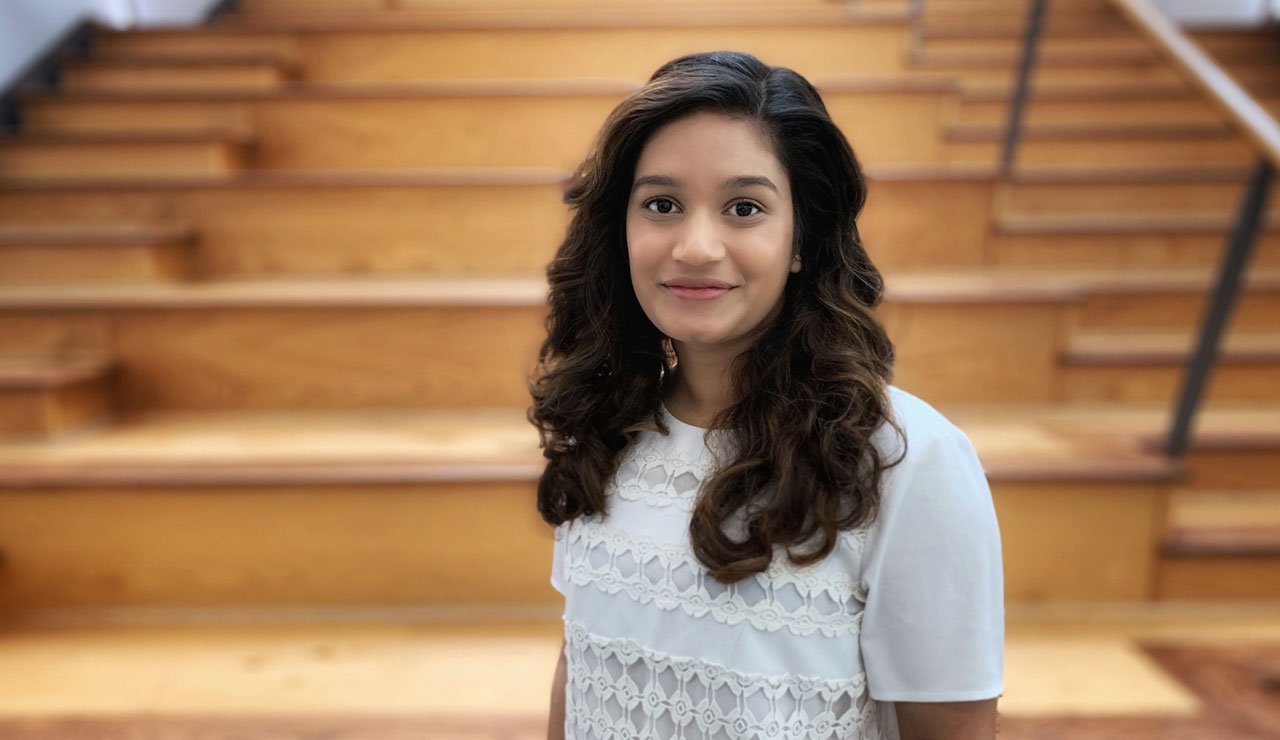Reshma Sirajee, '21 MSc

Student: Reshma Sirajee, MSc
Program: M.Sc.
Supervisors: Michael Hawkes
What led you to graduate studies in the Faculty of Medicine & Dentistry’s Department of Pediatrics?
I have lived in Edmonton since my family immigrated to Canada when I was 11 years old. Before I started my MSc, I completed an undergraduate degree in biological science. In Grade 10, when I was working at a pediatric research lab for a competition, it ignited my interest in pediatrics, and my interests spread into other areas, such as infectious diseases, during undergraduate studies. I found out about Michael Hawkes’ work with pediatric infectious diseases in global health settings when I wanted to combine these two passions.
What can you tell us about your research?
The title of my thesis is Growth Faltering and Developmental Delay in HIV-Exposed Uninfected Infants. My research project focused on infants born to women living with HIV. HIV-exposed uninfected (HEU) infants have an increased risk of reduced brain growth, lower height, lower weight and/or dying compared to infants who were born to mothers who do not have HIV.
Our aim was to identify if early growth issues in Ugandan HEU infants can predict developmental problems in later ages, such that we can improve their future health. Our study established that Ugandan HEU infants with low birth weight, and lower weight than other children of the same age at 18 months, may have developmental problems at 18 months of age. We may use these findings to show whether HEU infants are at risk of development challenges in the future.
How did the Department of Pediatrics prepare you for the next step in your career?
The next step in my career is medical school. My graduate studies taught me how to find answers to questions through research, stay tenacious in the face of adversity and seek help when needed. I also believe that the extensive knowledge I gained of pediatric HIV and my ability to seek answers will help me with patient care in the future.
Were there challenges or things that were harder than you imagined?
The COVID-19 travel ban meant I couldn’t go to Uganda to do my laboratory work with researchers in person. As a result, we developed a new plan to create experiment plans in Edmonton and sent them to Uganda, where the tests were run. It was a wonderful experience to work collaboratively and, although the pandemic posed a challenge, I learned to adapt and flourish from the situation.
Do you have any tips for new graduate students just beginning here or those who are nearly completed?
My first tip for new graduate students would be to read one paper a day to keep up with the current literature. I also blocked off time to help my mental health and not think about my studies. As Dr. Hawkes always says, you cannot pour from an empty cup and taking time off benefits productivity.
Were there any surprises along the way?
My graduate studies experience was full of opportunities that I did not expect. I assumed I would work only with local researchers, but I learned and grew from working with global health researchers in Uganda. I also had the chance to virtually present at one of the large HIV conferences, Conference on Retroviruses and Opportunistic Infections (CROI).
What will you miss about the Department of Pediatrics and your time here?
I will miss working with Dr. Hawkes and the researchers in Uganda. Also, I was a mentorship program coordinator for the Pediatrics Graduate Student Association and I will miss being with a team that was united by a common goal of supporting pediatric graduate students.
Where are you headed next?
I started my first year at Cumming School of Medicine in Calgary, and I am hoping to continue my research and community endeavours.